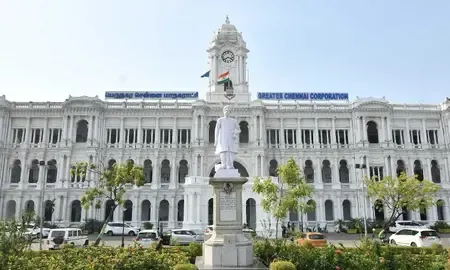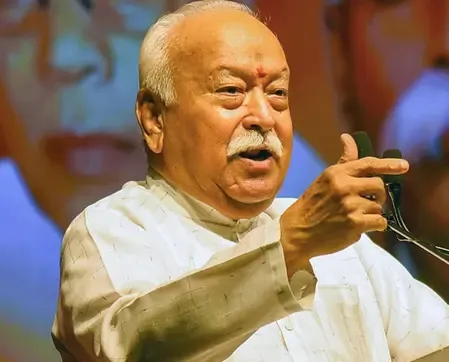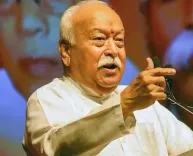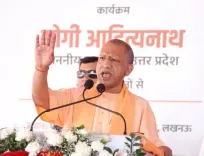Could the ‘Green Chennai Initiative’ Replace the WtE Plant?

Synopsis
Key Takeaways
- Community engagement is crucial for successful waste management.
- The GCI aims to establish Chennai as a zero-waste city.
- Decentralized facilities will enhance waste processing efficiency.
- Residents will be incentivized for participating in composting initiatives.
- The initiative includes plans for a Zero Waste Institute to promote sustainable practices.
Chennai, Aug 4 (NationPress) In a significant stride towards eco-friendly urban living, the Federation for North Chennai Residents Welfare Association has introduced a community-oriented and climate-adaptive alternative to the controversial waste-to-energy (WtE) incinerator project intended for the Kodungaiyur dumpyard. This initiative, known as the Green Chennai Initiative (GCI), aims to transform Chennai into India's pioneering zero-waste city by implementing decentralized and inclusive waste management solutions.
T.K. Shanmugam, president of the Federation, revealed that the proposal was crafted at the behest of Mayor R. Priya, who sought practical alternatives to the WtE project that involves incinerating municipal solid waste (MSW) to produce energy.
“We will officially present our proposal to the Mayor at Ripon Building on Monday afternoon,” he stated.
Currently, Chennai produces around 7,600 tonnes of MSW daily, with 68 percent — approximately 5,160 tonnes — being biodegradable. The GCI outlines a tiered wet waste management framework that commences at the household level and expands through municipal and city-wide infrastructure.
“Source segregation will become mandatory throughout the city,” said Shanmugam. The proposal suggests that at least 30 percent of the city’s wet waste can be processed at the source itself — in residences, apartments, malls, hotels, and event venues — through ongoing awareness campaigns promoting composting and biogas production.
“Kerala successfully employs a similar model, and it can be replicated in Chennai,” he asserted.
“Residents who compost their waste at the source should receive incentives, such as property tax reductions,” Shanmugam emphasized.
The GCI also advocates for the establishment of a decentralized infrastructure network to manage the city's biodegradable waste, which includes 302 Micro-Composting Centres (MCCs) capable of processing 1,510 tonnes daily.
The plan also includes 120 Decentralized Biogas Plants with a total capacity of 600 tonnes per day. Additionally, there are proposals for 20 Centralized Compressed Biogas (CBG) Plants, each managing 100 tonnes, totaling 2,000 tonnes daily.
“This approach will guarantee that Chennai’s wet waste is managed without resorting to landfills, alleviating the environmental and logistical challenges of transporting waste throughout the city,” Shanmugam explained.
Dry waste, which constitutes 2,300 tonnes per day, will be managed through decentralized Material Recovery Facilities (MRFs), with each capable of sorting 50 tonnes. These MRFs will serve as collection hubs for recyclables and link them to the formal recycling sector.
The GCI also plans for the management of 160 tonnes of domestic hazardous waste daily via 15 specialized facilities focused on safe handling and disposal.
Importantly, the initiative proposes the establishment of a Zero Waste Institute in Chennai. This institute will analyze residual waste patterns and suggest upstream interventions, such as redesigning non-recyclable products and phasing out harmful materials like multi-layered plastics and plastic-lined paper cups.
Strongly opposing the WtE incinerator, Shanmugam stated that incinerating 2,300 tonnes of dry waste would generate over 500 tonnes of toxic ash daily, resulting in severe environmental risks due to improper disposal.
Rather than pursuing the WtE project, the GCI envisions an ambitious future for the Kodungaiyur site: transforming it into an eco-park and a multidisciplinary learning center. The facility would feature a substantial public library and provide free lodging for students preparing for civil services and competitive examinations like Groups I and II.









